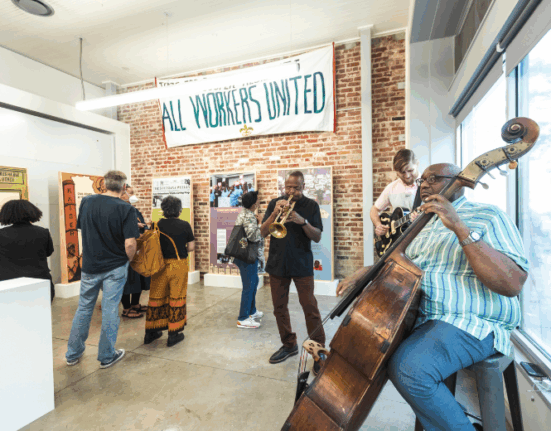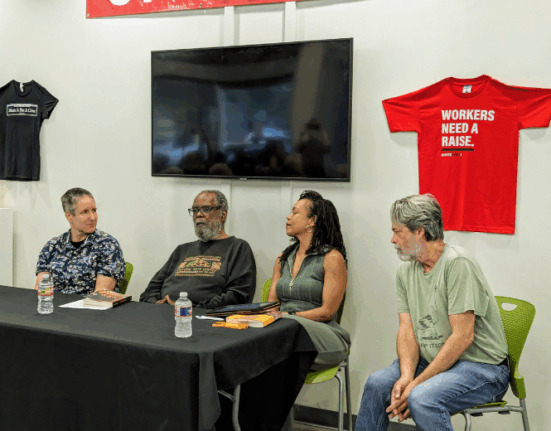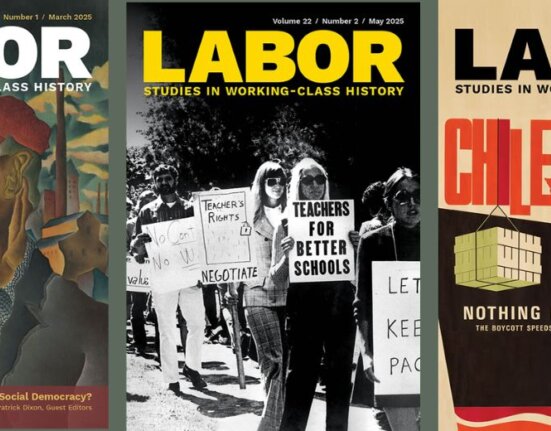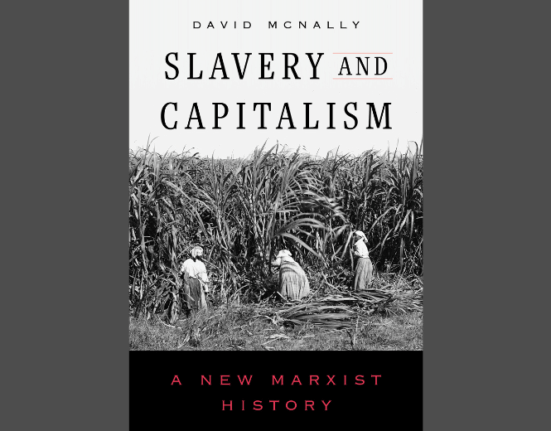Tula Connell, chair of LAWCHA’s Independent Scholars Committee and Claire Goldstene, chair of the Contingent Faculty Committee organized a Saturday lunch plenary at the June 2019 LAWCHA meeting in Durham. The well-attended and highly participatory session offered an opportunity to make more visible the experiences of independent and contingent faculty scholars, to learn about work the committees have done around issues impacting independent and contingent faculty, and to continue the conversations about what LAWCHA can do and how we can protect all workers in higher education.
Particularly from the mid-20th century onward, universities have served as important sites for the elaboration of ideas essential to progressive politics, perhaps most influentially, around multiculturalism. The corporatization of the university, epitomized by the growing ranks of contingent faculty, undermines the mission of universities, the non-monetary public good of educating an engaged citizenry likely to ask critical questions about existing power arrangements, and, ultimately, is an attack on the progressive ideas associated with higher education. As universities continue to devalue faculty, and as higher education jobs become more precarious, we need a path toward greater solidarity and where faculty of all types have dignity at work.
In 2015, LAWCHA members formed an ad hoc committee to discuss proposals to foster the full participation of adjunct and contingent faculty in the organization and to propose ideas for the ways LAWCHA could respond to the rapidly changing academic workplace. The LAWCHA Board in 2017 created an ad-hoc Committee on Independent Scholars. At the first meeting, independent scholars listed as obstacles limited or no access to libraries or online databases, no access to IRB review, lack of travel fund for conferences, and a sense that journals discriminate against scholars without academic affiliations when accepting articles. Both committees have been working with the LAWCHA board to address these issues, and to date, LAWCHA has taken several steps, including launching travel support grants for both contingent faculty and independent scholars to expand their access to LAWCHA conferences, and conducting a membership survey in 2018.
Survey results show that independent scholars and contingent faculty lack access to scholarly resources and funding to conduct research and attend conferences, creating major barriers to their engagement with the profession.
The survey also asked contingent faculty and independent scholars how LAWCHA could assist them:
- 34% say access to online databases
- 8% cite grants for research/travel to conferences other than LAWCHA
- 6% say access to libraries
- 3% say letters of introduction
- 65% of contingent faculty members say they lack access to administrative support
“LAWCHA’s organizational support for social justice and working-class issues makes it especially pertinent for the association to address inequities experienced by independent labor historians,” Connell said when opening the plenary session. “This plenary was a first step in taking seriously the need to rectify the increasing disparity between the dwindling ranks of full-time scholars and the increasing numbers of those without full academic association.”
At the plenary, Keri Leigh Merritt made it clear that being an independent scholar does not mean being economically self-sufficient; on the contrary, the two main avenues to becoming an “indie,” Merritt reported, were either “coming from money or marrying into it.” It is simply not a viable option for many people struggling with a tanking job market. Sharing many of the concerns of contingent faculty, independent scholars lack access to libraries, have no funding for presentations/conferences, and face institutional biases. Merritt provocatively ended by suggesting that if we want real change within the academy, we need to organize a strike among non-tenured scholars to refuse all unpaid labor.
Then Claire Goldstene situated what’s happening with adjunct faculty issues in a larger political and economic context. The rise of contingency means that a vision of an alternative future in our contemporary moment is unlikely to emerge from the university setting because precarious employment inhibits intellectual freedom. The onerous working conditions under which adjunct and other non-permanent faculty labor seem to suggest that teaching is considered unimportant and inconsequential; it’s the opposite: teaching is being made so difficult precisely because it is so important. The matter is urgent. Goldstene also explained the ways contingent faculty are physically, politically, and intellectually isolated.
Contingent faculty are usually geographically segregated. They often don’t have offices and, if they do, they are physically segregated from full-time faculty. This gets more complicated as they often travel from campus to campus to cobble together some sort of living. In many instances contingent faculty are fired with little-or-no notice to other members of the department, a kind of “being disappeared.” In many ways, full-time faculty literally don’t see contingents (some have likened this to being “untouchable”).
Further, contingent faculty are isolated intellectually when not considered full members of departments in regard to teaching and/or scholarship, despite doing the majority of teaching. They are left out of curriculum decisions and other aspects of faculty governance. In an academic environment that affords greater prestige to research and publishing, the institutional conditions under which contingent faculty struggle act as barriers to scholarly pursuits, which, in turn, reaffirms their lower status within the profession.
The financial precariousness of most postsecondary faculty cannot be separated from what happens inside the classroom: instructors may avoid controversial material (fear of student evaluations); may reduce the rigor of courses; and/or construct syllabi and select reading material with administrators, not students in mind. A large pool of economically insecure faculty is unlikely to promote classroom discussions that challenge conventional wisdom.
Naomi R Williams detailed the ways that tenured and tenure-track faculty can do more to support contingent faculty in their departments and at their institutions more broadly. Key areas included:
- Get to know contingent faculty in your departments
- Be aware of working conditions
- Make sure contingent faculty are aware of department resources available to them; which administrators are responsible for what services; access to orientation information
- Access to professional development opportunities
- Invitations (without expectations) to attend faculty meetings
- Inclusive department cultures
- Walk picket lines; organize; support organizing efforts on campus
- Provide avenues for them to present research
- Change department and institution by-laws to provide contingent faculty input on faculty governance issues
- Administrative positions for possible full-year salary, with a mind to workload issues
- Add contingent faculty issues to bargaining items during contract negotiations
We hope these conversations will be ongoing. We encourage LAWCHA members to join the contingent faculty and independent scholars committees to help LAWCHA continue to fulfill its mission.






